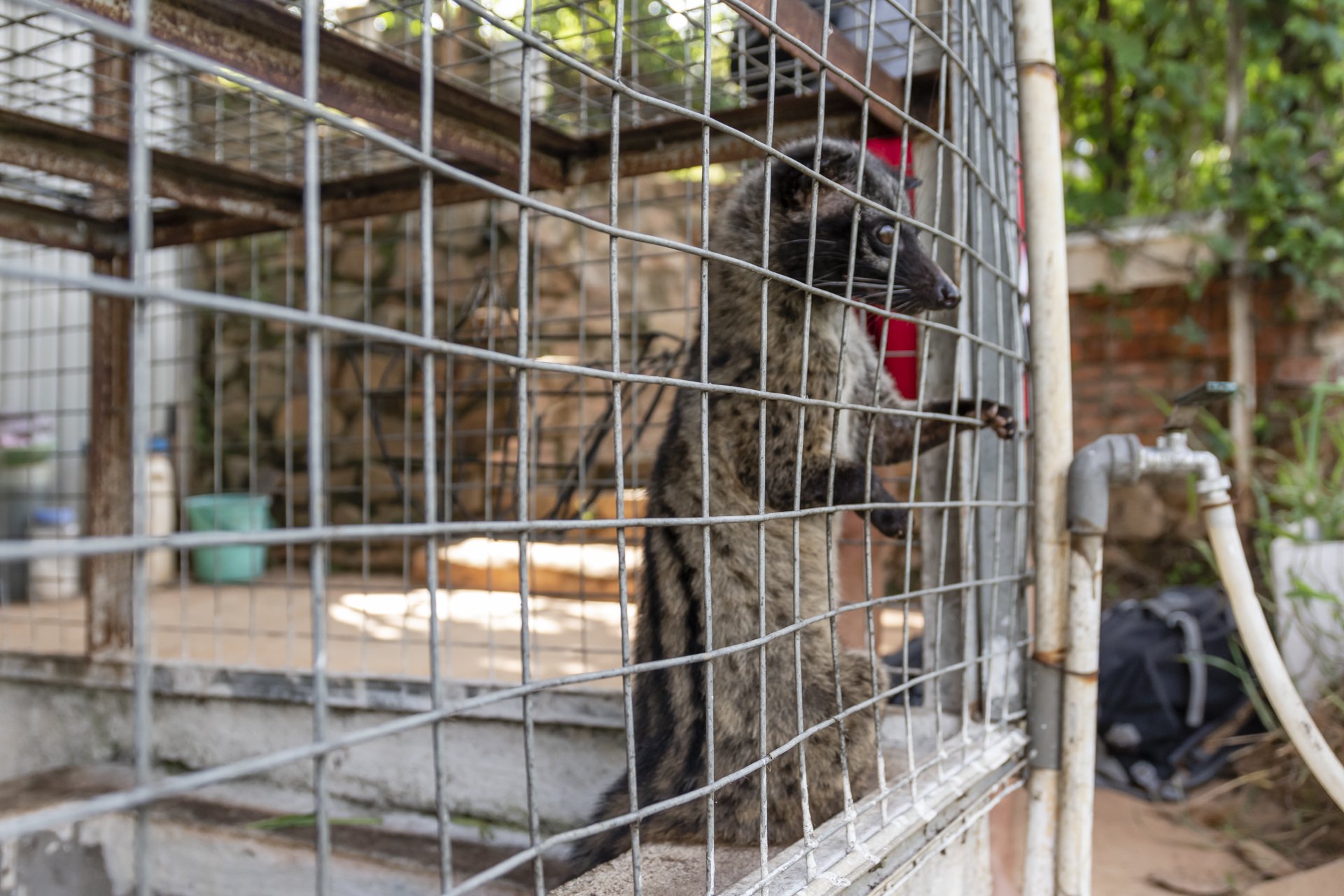
Civet Coffee: A Cup of Cruelty
Moving Animals documented the civet coffee trade in Vietnam, revealing a disturbing new dimension to the industry.
Media Hits
across 6 platforms
1 TV Interview
with ABC News
30,425 Signatures
recorded on petition
The Issue
Caged civets are being kept in appalling conditions across Southeast Asia to produce the world’s most expensive coffee - "kopi luwak". The infamous coffee - also known as ‘cat poop coffee’ - is made from coffee beans excreted by civet cats. Campaigners and animal lovers have long condemned the trade for taking civets from their forest homes and forcing them to live a life of captivity, where they suffer from depression and zoochosis.
Marketed as a popular activity for the ‘curious' traveller, civet coffee and civet coffee farm tours are a common find along the tourist trail in Southeast Asia. Tourists drive the demand for civet coffee - even though imitation brands that mimic the chemical process are popular, and a fraction of the price.
And it’s not just travel companies that are profiting from civet coffee. Amazon and other retailers continue to sell hundreds of civet coffee products to consumers despite the cruelty involved.
While documenting in Vietnam, Moving Animals investigated the cruel trade and discovered another disturbing dimension to the industry: unable to cope with captivity, these civets are driven to self-mutilate and chew their tails down to the near-bone in anxiety and boredom.
The visuals show caged civet cats with painful, raw tails - all so consumers can have coffee produced from these cats' feces. Yet companies, including travel businesses like Viator and Expedia, continue to profit from this suffering, with civet coffee tours a popular trend across SoutheastAsia, including Vietnam and Bali.
Impact For Change:
Moving Animals published our investigation with Care2, calling on travel companies to stop promoting and profiting from the civet coffee trade.
The images and footage of the civets behind the trade were published in media platforms METRO, Yahoo Japan, Plant Based News, One Green Planet, and Sentient Media.
Australian broadcaster ABC News also shared the footage and a hard-hitting interview with Moving Animals co-founder Paul Healey, reaching millions of viewers across the country.
To further bring to issue to the target audience, Moving Animals also published a piece ‘Why You Should Avoid Drinking Cat Poo Coffee’ with popular insurance agency, World Nomads, as part of their responsible travel initiative.
Use these visuals
Visit the Entertainment gallery on the Moving Animal archive. For related footage, please get in touch.









